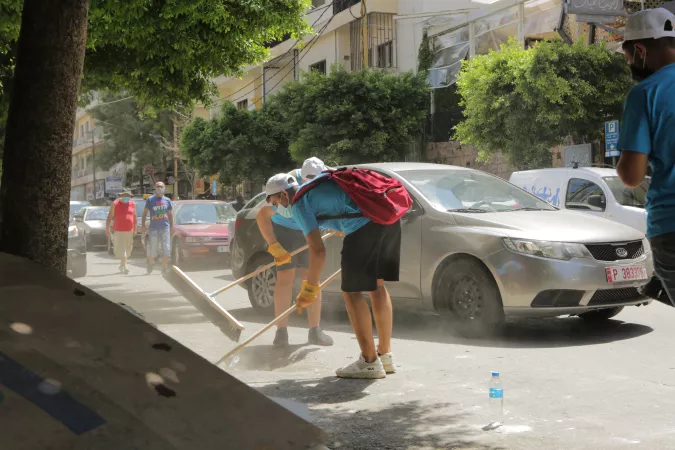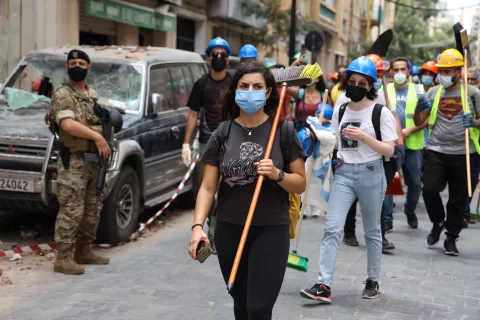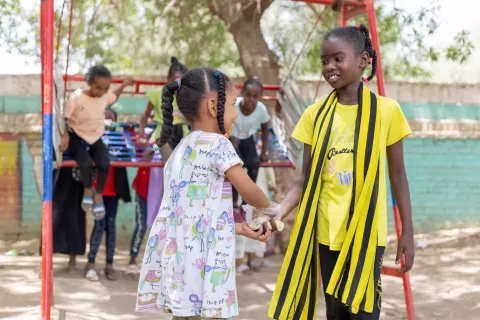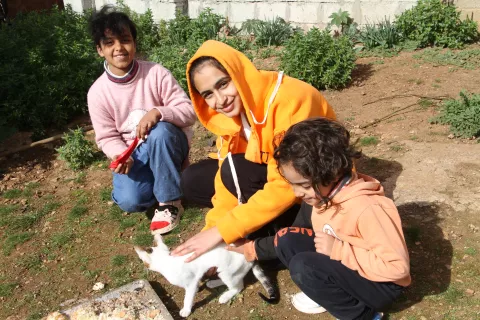Press briefing: the One Year on the Beirut Blast
Remarks by Ted Chaiban, UNICEF Regional Director for the Middle East and North Africa
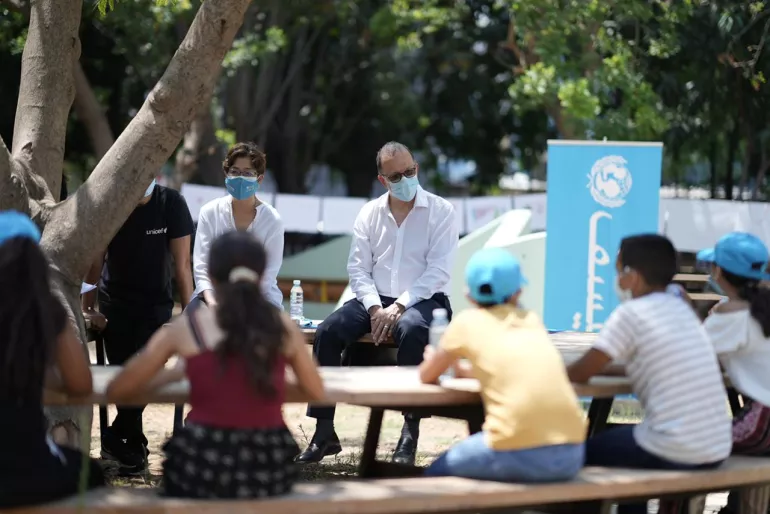
- Available in:
- English
- العربية
BEIRUT - 3 AUGUST 2021
We are here today to mark a very somber moment in Lebanon’s history. It’s been one year since the devastating blast in the Beirut port, one of the largest in recent history with unprecedented impact on families and the country as a whole.
Every child in the great Beirut area, or more than 600,000 children, has been affected directly or indirectly. Dozens lost their family members, friends and loved ones. The blast shattered people’s normalcy and robbed children and families of safety while being in their own homes. Infrastructure and services sustained enormous damage by the explosions including schools, hospital and public water and electricity network.
Since, the situation has gotten far worse. Lebanon is very sadly in free fall and is quickly hitting rock bottom. The country is struggling with a triple crisis: economically, politically, and the COVID-19 pandemic. The continued multiple crises are threatening to leave almost every child in the country vulnerable and in need.
According to a recent UNICEF assessment, the escalating crisis is putting children at risk as the majority of families cannot afford to meet even the very basic of needs.
Families reported over 30 per cent of children going to bed hungry and 77 per cent of Lebanese households said they do not have enough cash to buy necessary food. While that is the reality in almost all Syrian refugee households.
Let me quote Fadia, a mother of two told us: “Life has never been as hard as it is today, not even during the war. Back then, no child ever had to leave school and go to work”.
Today, her two sons, 15 and 17 spend five hours a day picking oranges to support the family. However, it’s not always enough. “When we have money, we buy what we need. If we don’t have money, we don’t eat,” she said.
This is the shocking reality of Fadia and sadly of hundreds of thousands of people in Lebanon today.
Water shortages are becoming a crisis as supply systems are on the verge of collapse, exacerbated by our electricity crisis. Over 71 per cent of people in the country risk losing access to water. This is more than 4 million people, including 1 million refugees.
“Turning a tap and not having water is not something we’re at all used to”, says 12-year-old Hasan.
Now, this has become the new normal in many households in Lebanon. Water pumping will gradually stop across the country in the next four to six weeks if fuel shortages continue and the economic crisis deepens.
Lebanon is known for its people, their abilities, their potential. This simply should not happen. We are now bearing witness to a rapid collapse of the key infrastructure of services that should be educating, protecting and keeping children thriving and healthy in Lebanon – a generation that we cannot fail to protect and that we need to invest in for the future of the country.
Children in Lebanon must be a top priority, their basic rights respected and at hand. This includes the basics of health, nutrition and being protected from violence including abuse and exploitation. Every child deserves this and certainly every child in Lebanon deserves this too!
It is time for the Lebanese leaders to overcome their political differences, enough is enough. It is high time they all come together and form a government that has servicing communities and the Lebanese people at its core. A government capable to bring the country on the path to recovery. A government that is finally able to address people’s grievances and aspirations.
It is also time to have a transparent and credible investigation to determine the cause of the explosion, hold those responsible for the blast accountable and bring justice to affected families including those who lost their loved one.
Meanwhile, standing idle is not an option. The cost of inaction is too high. In this highly fragile situation, communities in Lebanon, including the Lebanese as well as Syrian and Palestinian refugees, are at risk of losing their main sources of access to basic services, and the consequences of that will be far-reaching, and perhaps difficult to reverse.
Sustaining the delivery of public services for the short and longer term is key for child survival and development. This includes the provision of water, education, and health care for all directly benefitting children and the communities in general. This can only however happen through good governance and public systems that are resilient to even the worst of shocks and crises. If those systems were in place, we would not have been where we are with the water crisis (as an example) where 75 per cent of the households in the country are at a risk of losing access to water.
Last year right after the blast, we witnessed the power of young people who went out on the streets helping those impacted. They were the first on the ground, sweeping the street, cleaning the debris and the broken glass, helping the elderly with food, buying medicine and groceries. From these youth we learn the power of community work and the power of civil society. It is them we need to support so they don’t give up hope in the grim reality of Lebanon today.
In Lebanon’s context, cash for families is most needed. This is our chance to build the national social assistance system and expand access to reach families in need with cash assistance like we are doing with the “Haddi” programme. In this cash programme, what is needed is to reach families with young children, people with disability and people over the age of 70.
It is time to take collective action. If we all stand together, we can and will bring Lebanon, the Lebanese people and the Lebanese children back to where Lebanon deserves to be: a place where dignity is preserved, a place where children can thrive, a place suitable for a better tomorrow for Lebanon, for the region and for the world.
--ENDs--
Media contacts
Additional resources
About UNICEF
UNICEF promotes the rights and wellbeing of every child, in everything we do. Together with our partners, we work in 190 countries and territories to translate that commitment into practical action, focusing special effort on reaching the most vulnerable and excluded children, to the benefit of all children, everywhere.
For more information about UNICEF and its work for children, visit www.unicef.org/mena
Follow UNICEF on Twitter Facebook Instagram LinkedIn Youtube TikTok
Join our UNICEF MENA WhatsApp group to get the latest news. Send us a text message at the following number and we'll add you to our list: 00962790082531

